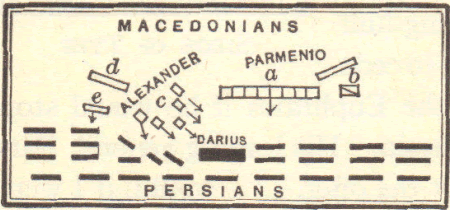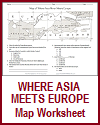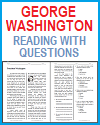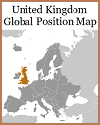Map Plan of the Battle of Arbela, a.k.a. Battle of Gaugamela: This illustration shows Macedonian (a) heavy-armed foot soldiers, (b) and (c) cavalry, (d) light-armed foot soldiers, and (e) archers and javelin throwers. Where Alexander the Great's Macedonian soldiers beat the Persians under Darius III. Click here to enlarge.
 The Battle of Gaugamela, also known as the Battle of Arbela, was a pivotal confrontation that took place in 331 BCE between the armies of Alexander the Great of Macedon and Darius III of Persia. This battle marked a significant turning point in the wars of Alexander's conquest of the Persian Empire.
The Battle of Gaugamela, also known as the Battle of Arbela, was a pivotal confrontation that took place in 331 BCE between the armies of Alexander the Great of Macedon and Darius III of Persia. This battle marked a significant turning point in the wars of Alexander's conquest of the Persian Empire.
Context--Alexander's Conquest: By the time of the Battle of Gaugamela, Alexander the Great had already established a vast empire, conquering territories from Greece to Egypt and into the heart of the Persian Empire.
Key Participants:
- Alexander the Great: The young and ambitious king of Macedon, known for his brilliant military tactics and leadership.
- Darius III: The Persian King of Kings, who led the Persian Empire during Alexander's invasion.
Battle Details:
- Location: The battle took place near the town of Gaugamela (modern-day Tel Gomel, Iraq), which was strategically located in the heart of Mesopotamia.
- Troop Deployment: Alexander commanded a mixed army of Macedonian infantry, cavalry, and Greek allies. Darius's army consisted of a vast, diverse force, including Persian infantry, cavalry, and war elephants.
- The Phalanx: Alexander employed his infantry in the traditional Macedonian phalanx formation, a tightly packed formation of soldiers carrying long spears and shields.
- Cavalry Charge: The key to Alexander's success in this battle was his use of cavalry. He led a decisive cavalry charge on the right side of his army, targeting Darius himself and causing chaos in the Persian ranks.
- Darius's Mistake: Darius, in an attempt to defeat Alexander early in the battle, led a reckless charge against the Macedonian phalanx. However, he failed to break their formation, and this gave Alexander an opportunity.
- Darius's Retreat: When Darius saw his army in disarray and his personal safety at risk, he fled the battlefield, leaving his army leaderless. This further demoralized the Persian troops.
- Macedonian Victory: The Battle of Gaugamela resulted in a decisive victory for Alexander. The Persian army suffered heavy casualties, and Darius's flight essentially sealed the fate of the Persian Empire.
Aftermath:
- Conquest of Babylon: Following the victory at Gaugamela, Alexander continued his campaign and entered the city of Babylon, where he was welcomed as a liberator by the Babylonians.
- Decline of the Persian Empire: The defeat at Gaugamela marked the decline of the once-mighty Persian Empire. Despite later attempts by Darius to resist Alexander, the empire gradually fell under Macedonian control.
- Alexander's Expansion: After the battle, Alexander continued his conquest eastward, eventually reaching India before his troops forced him to turn back.
The Battle of Gaugamela is often cited as one of Alexander's greatest military triumphs. It allowed him to further consolidate his power in the Persian Empire and paved the way for his extensive conquests in Asia. It also marked the beginning of the end for the Achaemenid Persian Empire.
|
 The Battle of Gaugamela, also known as the Battle of Arbela, was a pivotal confrontation that took place in 331 BCE between the armies of Alexander the Great of Macedon and Darius III of Persia. This battle marked a significant turning point in the wars of Alexander's conquest of the Persian Empire.
The Battle of Gaugamela, also known as the Battle of Arbela, was a pivotal confrontation that took place in 331 BCE between the armies of Alexander the Great of Macedon and Darius III of Persia. This battle marked a significant turning point in the wars of Alexander's conquest of the Persian Empire. 













